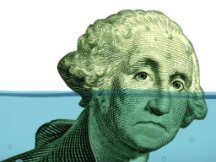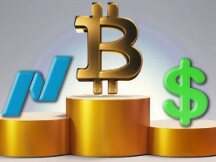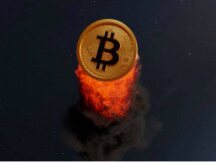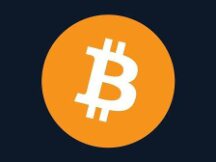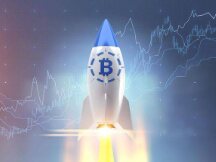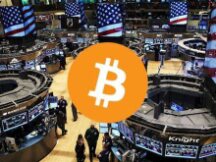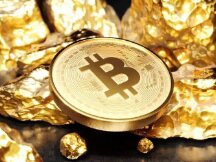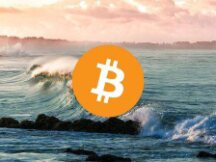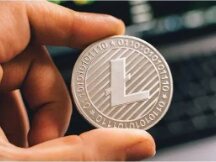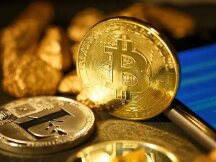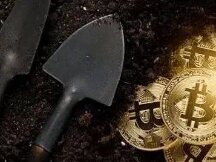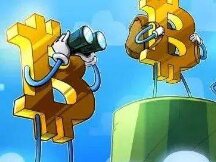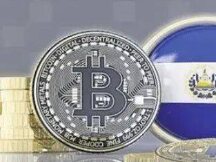Is Bitcoin Inflation More Than A Bull Market? American assassin for financial control
Morgan Stanley published an interesting article a few days ago explaining why Bitcoin has risen so recently. While we know that most of our analysis is based on the recent SEC approval of the Bitcoin Futures ETF, Morgan Stanley's investigation shows that many investors and investors have used Bitcoin and cryptocurrencies to fight inflation. ETFs are the short term cause, but inflation is the root cause. In fact, support is often a combination of a lot of things, and we know from experience that a product can do little time, so both of the above have to be. Market gain equals providing enough chips at one end of the instrument to prevent instrument balance and lateral force from floating until it releases more weight balance , causing the fall. This "sufficient chip" is not complete with a single product.
Morgan Stanley research proves at least one thing. In other words, growing inflationary conditions in the United States and around the world have played a significant role in the rise of Bitcoin, creating the most important market engine for Bitcoin. Moment. I know the US dollar rose more than 4 or 5% in the fifth month. The CEO of Twitter has blatantly described the onset of "hyperinflation", and Fed Chairman Powell did not predict the term "temporary inflation". "At the moment, he speaks in a disgusting way." Most of the more consensus analysts now believe inflation in the United States will continue over the next year, which will be more of a year of high inflation.
While the threat of inflation appears to have intensified due to the crisis in the supply chain, the market is wavering, both large and small, through the use of tools of temporary interest. . Everyone knew that Tapir couldn't fix the problem, so he asked for the price to go up once. regular turbulence. Two questions still arise here. First, can the United States control inflation? The second is whether the United States can control inflation by raising interest rates?

The wait for higher interest rates to control inflation was largely due to the impact of market stagflation of the 1980s, which offset rising interest rates with rising rates. interest. Meanwhile, the Fed dramatically increased interest rates from 8.5% to 11.5% from 1983 to 1984, and further lowered interest rates by higher interest rates, ending more than 10 years of inflation. Since then, raising interest rates whenever inflation seems to be the only option.
The question is, can we sing it again because it was a song 40 years ago? At the time, the United States owed very little, domestic debt was only $ 1 trillion, and other debt, including corporate and housing debt, was minimal. Frankly speaking, the debt model can withstand high interest rates. Now what? The financial contract alone is around 30 trillion yuan. A 1% increase would raise interest rates by $ 300 billion a year, not to mention the astonishing interest rates of 11.5% over the past 40 years. crazy, and with about $ 3.5 trillion in annual income in the United States, how can you pay high interest rates? An increase in interest rates increases interest rates, and you can add 1 point even if you end up burning your city down.
Suddenly, the whole press is oppressed, all the "little economists" and often inaccurate. But it is impossible to raise interest rates. Of course not. The crisis clearly shows that the United States can control inflation. The reason why these reports suggest that Americans can control inflation by raising interest rates is that these people have no knowledge of the orthodox industry, haphazard writing, or their past marketing methods, but not all. The use of technology and its practices in finance and finance over the past 20 years.

Thus, this article highlights the technological uncertainty of controlling inflation in the United States. You can think of inflation as too much stress. Then there are only two things that affect the result. One is the size (volume) of the flow and the other is the speed (speed) of the flow. According to basic physics, the total inflow (i.e. the rate of inflation) is nothing more than the amount of water multiplied by the flow. It is true that the increase in the interest rate affected the flow, thus decreasing the flow to reduce the total injection of water into the constraint, which is a clear indication of the unfairness of the way. It can also be seen that there are many direct ways to reduce the size of runoff.
What is the size of the stream, that is, the water? The U.S. dollar (Currency in Circulation, CIC) in circulation in the U.S. financial model is the currency of all bank accounts currently open at Fed member banks (almost all large and medium-sized banks in the U.S. originate from banks members of the Fed). . really circulates in the community, it's money. This means that the system is completely under the control of the Fed.
So get it? If the Fed wants to control inflation, it can adjust it by administering the CIC. The first is to stop the growth of CIC so that revenue growth does not increase further. Otherwise, reduce the CIC. If the water is low, but the flow is still high, isn't the full amount wasted? This is how you pull the check from the bottom of the pan. Two years ago, this was the most difficult strategy to control inflation in the United States. It is not of hiking interest. Interest rates are higher because they are easier to use. The increase in interest rates indicates the applicable rates and is sufficient to offset normal inflation. However, if you fall into the wrong circle, you should take your salary below it, the real safety net is to adjust the CIC to lower the community dollar. Is there a heck of inflation?
This scam cannot be taken by an intermediary bank, and it cannot control all CIC funds without the strong power that governs the national economy. . Thus, the Fed's main fear is not inflation, but the negative impact of monetary policy mentioned above. The depreciation of the dollar corresponds to the total of non-convertible assets. What is the result? Of course, asset prices are also falling, and a drop in CIC could cause US commodities and commodities to drop sharply. You can control inflation, but can you control the financial crisis? This is something the Fed has been wary of, not to say it's bad for the real economy. This is also why he refuses to use some light fixtures such as the cone and is not guaranteed for Chinese drug control.

Since inflation can finally be brought under control, she decided that the Fed should be the last resort, because it has confidence and the means, and cannot take it until it raises the bar of evil. Before that, the main goal was to market with a small amount of work. Will interest rates rise even if interest rates rise? Are there big bulls in the US commodities market that aren't facing the inflation cycle? The increases in interest never led to an improvement in the bull market. If you go to CIC, you are out of breath.
Moreover, the American attitude in the country (while also awaiting another recent article from the Blues) of not worrying about living in poverty is really affected by inflation. Millions of starving Americans died during the Great Depression of 1929. And do you think you would have survived? There was big stagflation and money surge for over a decade in the 1980s, so what?
Thus, the bull market is doing well and the rise in prices will inevitably stimulate Bitcoin and traditional cryptocurrencies to achieve greater growth and release more capital. If inflation is long while waiting for this bull market to end, we can only see a short market, at least for Bitcoin, and new energy will soon return to the average.

Scan QR code with WeChat
